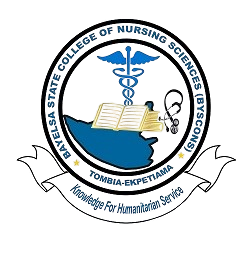Clinical training is a vital component of nursing education, providing students with the hands-on experience necessary to become competent and confident healthcare professionals. At Bayelsa State College of Nursing Sciences, we emphasize practical learning through a structured clinical training program that prepares our students for real-world challenges in the nursing field.
View Admission Process
Empowering businesses nationwide through innovative strategies and tailored solutions.

Overview of Clinical Training
Our clinical training program is designed to bridge the gap between theoretical knowledge and practical application. Students engage in direct patient care under the supervision of experienced nursing professionals, allowing them to apply classroom concepts in real-life situations. This experiential learning is crucial for developing clinical judgment and critical thinking skills.
Clinical Training Facilities
The college boasts state-of-the-art clinical labs and simulation centers equipped with modern technology. These facilities offer students a safe environment to practice essential nursing skills, such as patient assessment, medication administration, and emergency response. Through simulation scenarios, students can hone their skills and gain confidence before working with actual patients.
Affiliated Hospitals and Health Institutions
We have established partnerships with several reputable hospitals and healthcare facilities throughout Bayelsa State. These affiliations provide our students with diverse clinical rotation opportunities across various specialties, including pediatrics, maternal health, geriatrics, and emergency care. Our partnerships ensure that students receive exposure to different healthcare settings, enhancing their adaptability and understanding of patient care.
Types of Clinical Rotations
Students experience a range of clinical rotations, typically spanning several weeks in each specialty. This hands-on training helps them develop a well-rounded skill set, preparing them for various roles within the nursing profession. Our curriculum is designed to meet the requirements of national nursing boards, ensuring that students are well-prepared for their licensure examinations.
Mentorship and Supervision
Throughout their clinical placements, students are guided by experienced nursing mentors who provide valuable insights and feedback. This mentorship is crucial for fostering professional growth and confidence in clinical skills. Mentors help students navigate challenges, encouraging them to ask questions and reflect on their experiences.
Assessment and Evaluation
Students are regularly assessed during their clinical training through direct observation and feedback from instructors and mentors. This evaluation process is designed to ensure that students meet the expected competencies and standards required for nursing practice. Constructive feedback helps them identify areas for improvement and fosters a commitment to lifelong learning.
Student Experiences
Our students often share how clinical training has transformed their understanding of nursing. Many report that working directly with patients has reinforced their passion for the profession and solidified their decision to pursue a career in nursing. Testimonials highlight the invaluable lessons learned during clinical rotations and the importance of hands-on experience in shaping their future.
Preparing for Clinical Training
To prepare for their clinical placements, students receive guidance on necessary preparations, including required uniforms, immunizations, and maintaining a professional demeanor. This preparation is essential for fostering a sense of readiness and professionalism as students transition into clinical settings.

